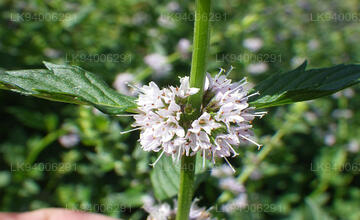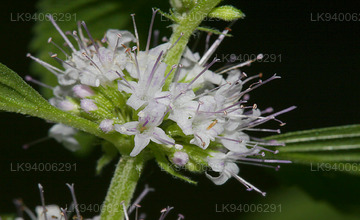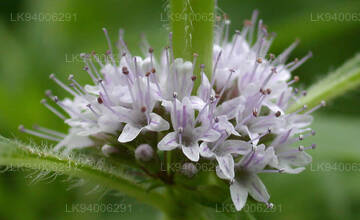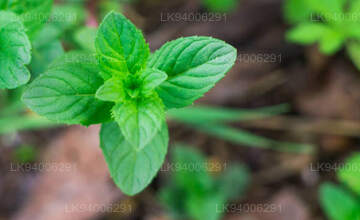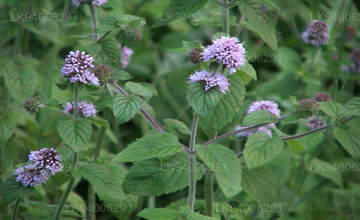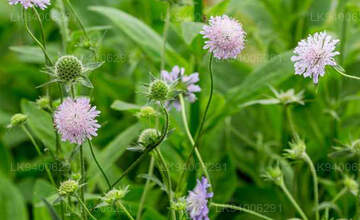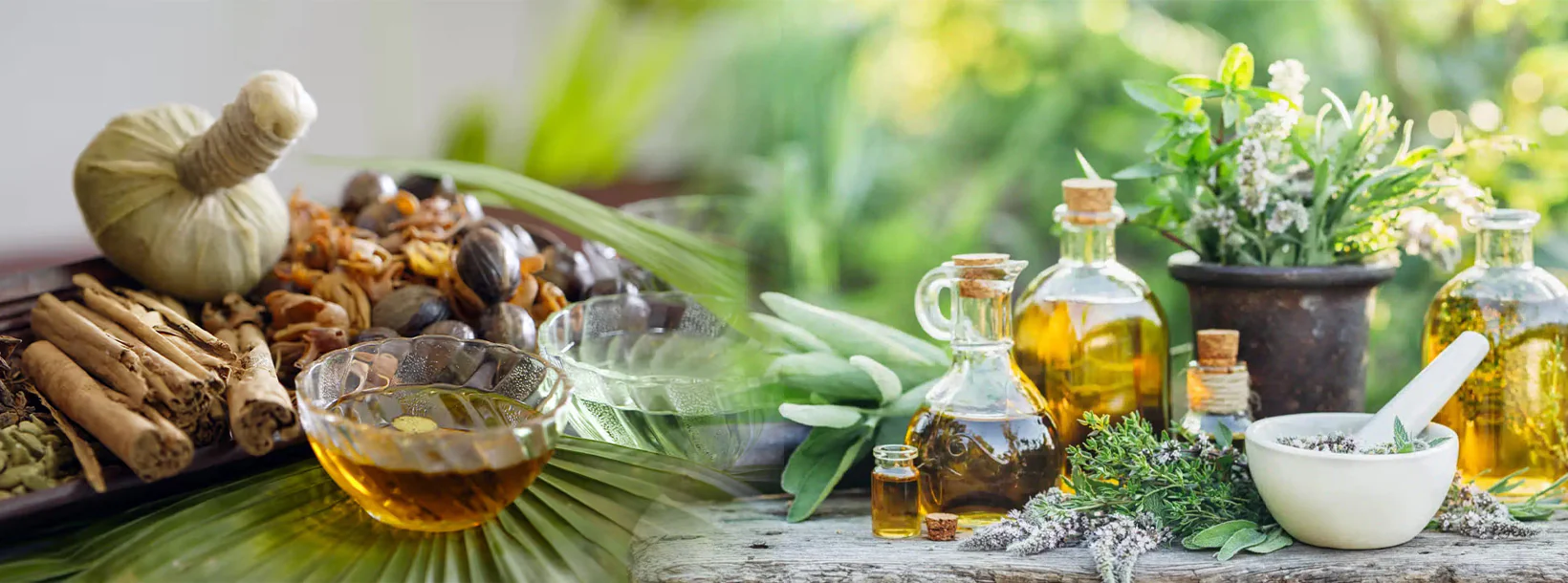
Ayurvedic Medicinal Plants of Sri Lanka
Sri Lanka's Ayurvedic tradition features a rich variety of medicinal plants used for centuries. Sri Lanka has a rich tradition of Ayurvedic medicine, drawing on its indigenous knowledge and a variety of medicinal plants. Here are some notable Ayurvedic medicinal plants found in Sri Lanka:
Mentha arvensis var. javanica; Oduthalan (ඔඩුතලං)
Mint is a herbaceous perennial plant generally growing to 10–60 cm (4–24 in) and rarely up to 100 cm (40 in) tall. It has a creeping rootstock from which grow erect or semi-sprawling squarish stems. The leaves are in opposite pairs, simple, 2–6.5 cm (3⁄4–2+1⁄2 in) long and 1–2 cm (1⁄2–3⁄4 in) broad, hairy, and with a coarsely serrated margin. The flowers are pale purple (occasionally white or pink), in whorls on the stem at the bases of the leaves. Each flower is 3 to 4 mm (1⁄8 to 5⁄32 in) long and has a five-lobed hairy calyx, a four-lobed corolla with the uppermost lobe larger than the others and four stamens. The fruit is a two-chambered carpel.It grows in moist places, especially along streams.
- Uses
The leaves have been made into tea to treat colds or aid digestion.They can also be eaten raw. Chemical substances that can be extracted from wild mint include menthol, menthone, isomenthone, neomenthol, limonene, methyl acetate, piperitone, beta-caryophyllene, alpha-pinene, beta-pinene, tannins and flavonoids.Mint extracts and menthol-related chemicals are used in food, drinks, cough medicines, creams and cigarettes.Menthol is widely used in dental care, as a mouthwash potentially inhibiting streptococci and lactobacilli bacteria.
Mentha arvensis var. javanica is part of the catalog of ayurvedic medicinal plants of Sri Lanka.
-

Ankenda
Acronychia pedunculata -

Beli
Aegle marmelos -

Bakmi
Nauclea orientalis -

Bangwel-geta
Coscinium fenestratum -

Bukinda /Walkinda
Tinospora malabarica -

Bu- kobbe
Allophylus cobbe -

Dodan –kaha
Memecylon capitellatum -

Diyamitta
Cissampelos pareira -

Embul dodan
Citrus aurantium -

Gas nidikumba
Biophytun reinward -

Hintambala
Carmona microphylla -

Goraka
Garcinia cambogia -

Karapincha
Murraya koenigii -

Keppetiya
Croton laccifer -

Kohomba
Azadirachta indica -

Kotikan-bevila
Sida alba -

Kudumiris (Forest paper)
Toddlia asiatica -

Kurundu
Cinnamomum zeylanicum -

Mahakaramba
Carissa carandas -

Muna mal
Mimusops elengi -

Nelli
Phyltanthus emblica -

Puwak
Areca catechu -

Rath mal
Ixora coccinea -

Eepatta / Ruk - anguna
Alangium salviifolium -

Siyambala
Tamarindus indica -

Walangasal / Wal-embilla
Embelia ribes -

Wal Karapincha
Micromelum ceylanicum -

Welangiriya
Paramignya monophylla
Ayurvedic and Herbal
-
Siddhalepa Ayurveda Herbal Balm
Preț obișnuit Începând cu 2,00 lei RONPreț obișnuitPreț unitar / pe -
Lakpura Wildcrafted Soursop (Guanabana, Graviola, Guyabano) Dehydrated Leaves Whole
Preț obișnuit Începând cu 9,00 lei RONPreț obișnuitPreț unitar / pe -
Sethsuwa Pranajeewa Oil
Preț obișnuit Începând cu 16,00 lei RONPreț obișnuitPreț unitar / pe -
Link Swastha Thriphala
Preț obișnuit Începând cu 10,00 lei RONPreț obișnuitPreț unitar / pe

